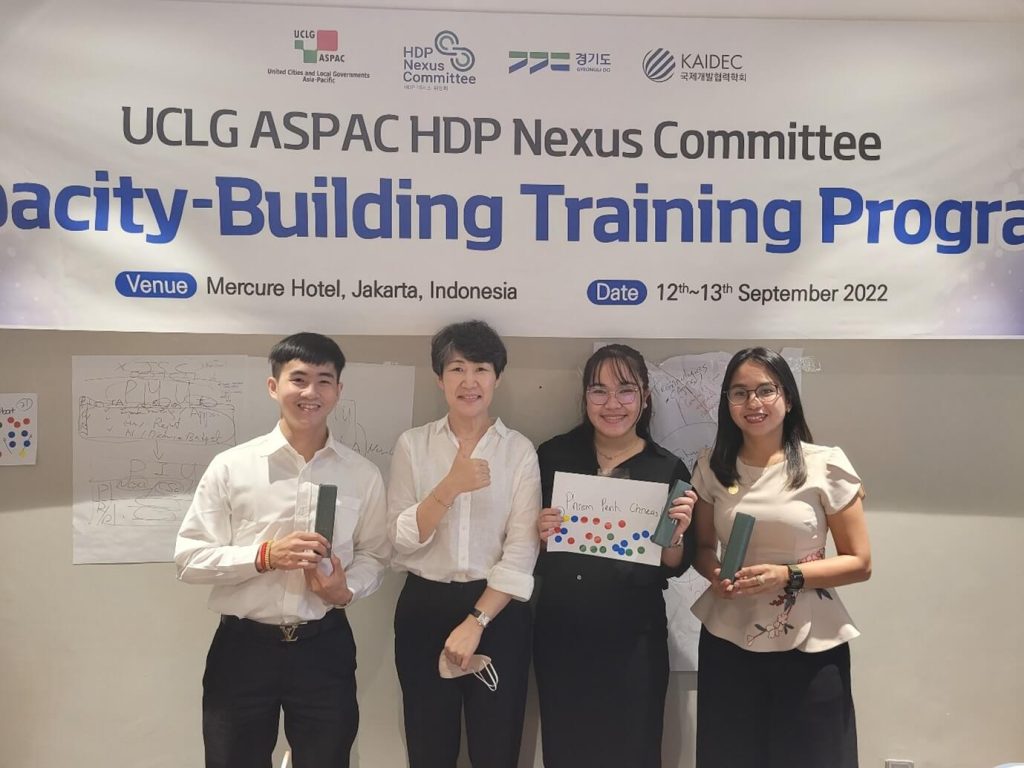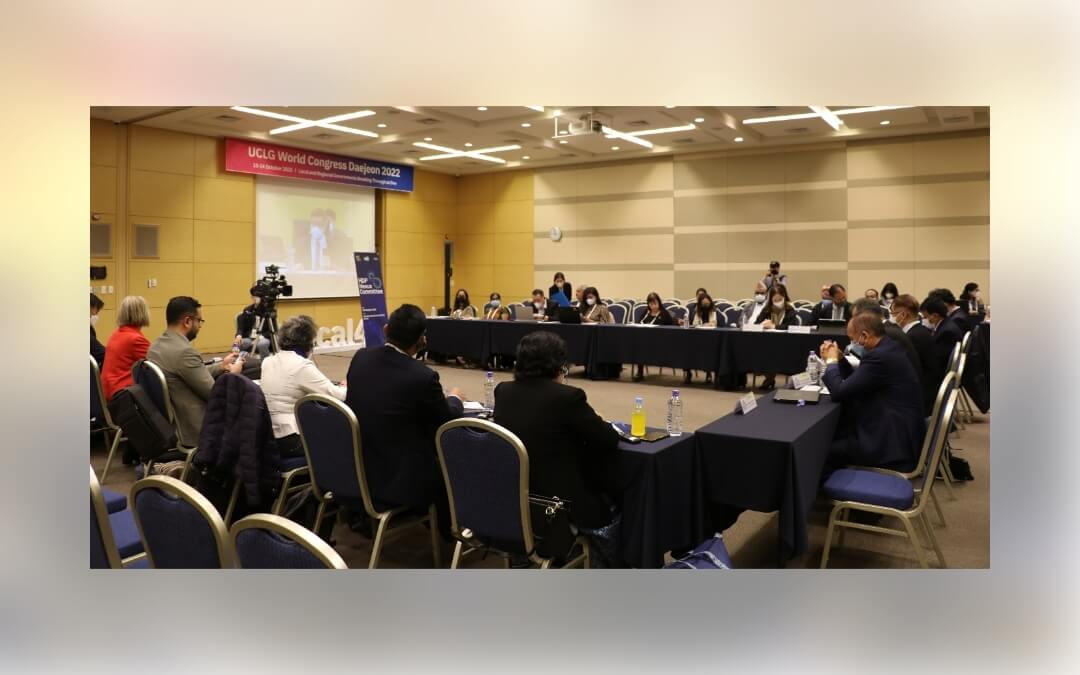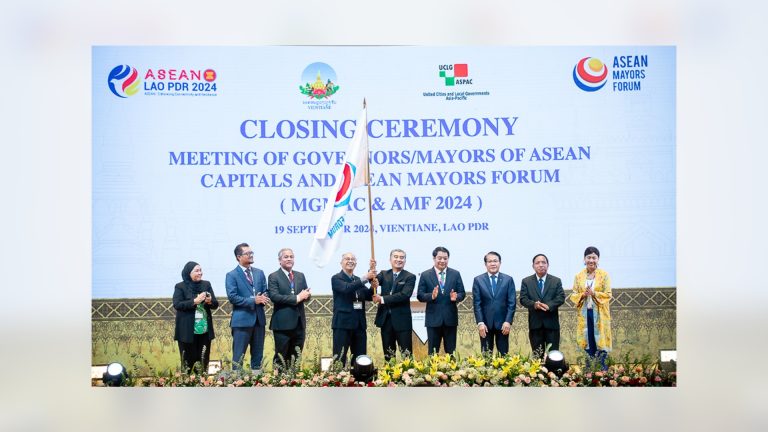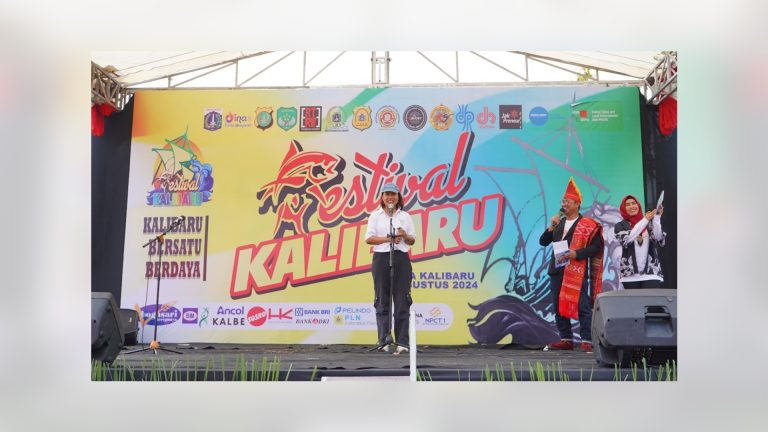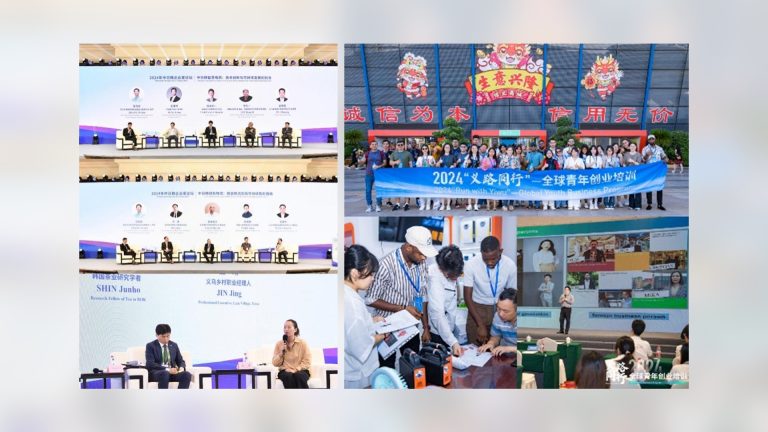October 10, 2022 | UCLG ASPAC’s Humanitarian Development Peace (HDP) Nexus Committee, led by Gyeonggi, successfully held a committee meeting in conjunction with the UCLG World Congress 2022. It was the third committee meeting since its first establishment in September 2021 and was attended by a total of 50 local government officials from 12 countries (offline and online). Mr. Kim Young-joon, Ambassador for International Relations of Gyeonggi, expressed special gratitude for the participants’ support to the goals of the Gyeonggi Peace ODA and HDP Nexus.
Mr. Kim Sung-gyu, Chairman of the Korea Association of International Development and Cooperation (KAIDEC), introduced the committee’s programmes this year. He shared that in August 2022, the committee organised a virtually capacity-building programme (Stage I and Stage II) and built foundation for the committee’s writing Project Concept Paper (PCP). In September, capacity building activity (Stage III) was conducted offline in Jakarta, Indonesia, where participants (from Phnom Penh, Cambodia; Semarang and Jayapura, Indonesia) practiced writing project concept papers (PCPs) through training, and professional consultants from Korea provided customised feedback to them. The committee also planned to conduct detailed consultations in the participating regions to refine and increase the validity of PCP writing in the future and to also discover final pilot projects.
Mr. Kwon Goo-soon, Professor of Seoul Cyber University, presented the Mine Action project conducted in Gyeonggi in 2021, showing that the project is a link between humanitarian aid, sustainable development, and peacebuilding. In particular, he said that the peace ODA project in Gyeonggi is expected to be developed based on HDP Nexus, and that it has been achieving positive results by promoting inclusive socio-economic development by strengthening integrated management capabilities in the downstream area of the Mekong River.
Mr. Yeon Kyung-sim, Director of the Busan Foundation for International Cooperation, emphasised a goal-oriented approach based on inter-city relationships and noted that multi-dimensional stakeholder participation is important. Ms. Sara Hoeflich, UCLG Learning Director, expressed her expectation that the capacity building training programme will be the cornerstone of the ODA pilot project and expand its scope beyond the Asia-Pacific region. Mr. Krishna Neupane of ADCCN expressed high expectation for the future role of peace ODA in Gyeonggi recalling that the concept of peace creation extends to natural disasters such as climate change.

1. Ms. Dewi (Semarang)
I have always been interested in ODA projects, but I always thought it was not enough for local governments to write their own PCPs and propose projects. As I learned and practiced the elements that make up PCP one by one, I understood which materials to refer to and which direction to write. No matter how well government officials write, I learned that the information that the subject of selecting the project cannot be omitted. Now I think I know what to refer when I write a PCP. I hope that this programme will continue, and other government officials will also strengthen their capabilities in writing PCP.
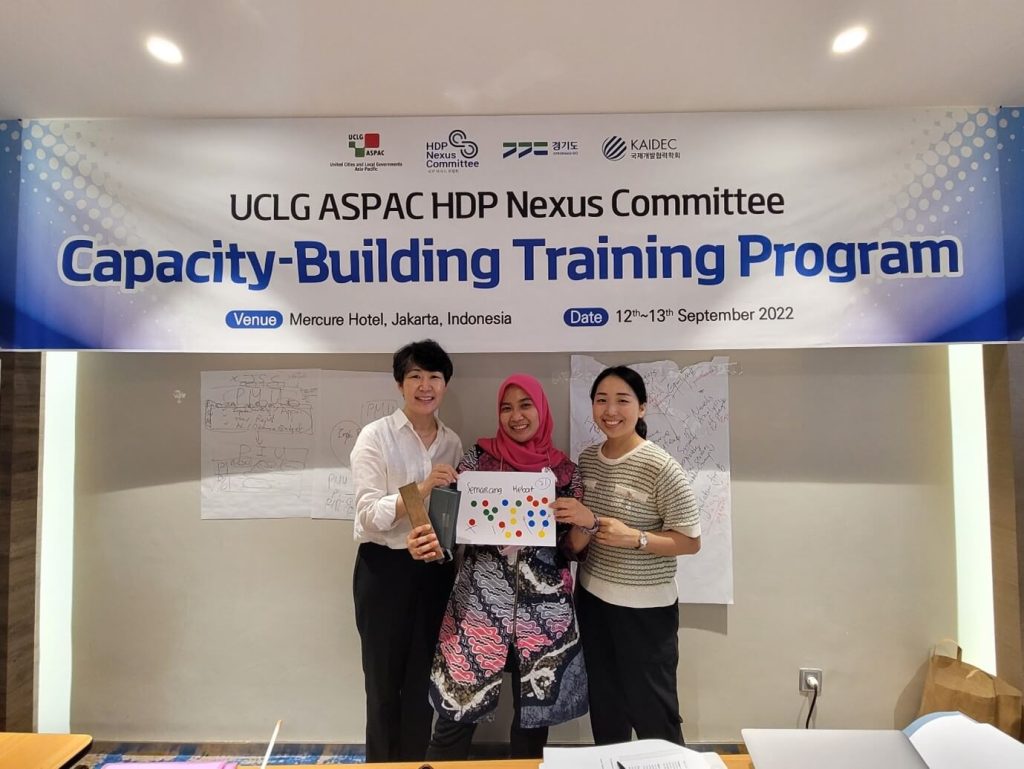
2. Ms. Mesalin (Jayapura)
Of course, it is true that the ability to create PCP has been strengthened, but it was especially interesting to select a topic for HDP Nexus. Because there was no understanding of the peace in ODA project, it was difficult to select a topic for the project proposal at first. It was unclear which topic belonged to the Peace ODA. It was beneficial to know what the process of selecting detailed topics was for the three fields, Humanitarian, Development, and Peace to be intertwined. Because we are government officials, we were accustomed to the top-down of the government offering business to beneficiaries, and it was interesting to start the business from the beneficiary’s situation.
3. Ms. Henny (Jayapura)
Sharing PCP with other participants from different regions, it was helpful to see how their PCPs were completed. Various topics have emerged, and the topics have developed into detailed topics that match HDP Nexus, and what indicators are used to write PCPs, so that our local governments can know what topics to look at in the future. I was a little stressed out writing a PCP for two days, but when I saw the PCP being completed, I gained confidence that I could write a PCP on my own in the future.
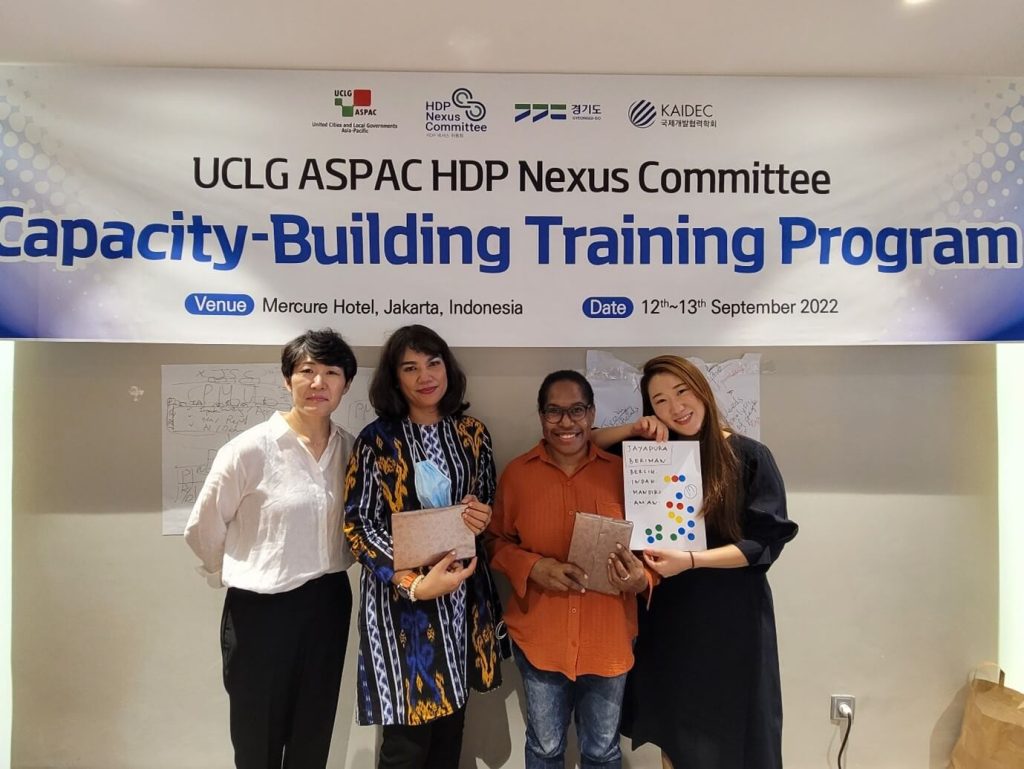
4. Ms. Pheapothroth (Phnom Penh)
Before participating in the programme, I wrote a business proposal to solve many problems with one business, so it seemed that only the budget was huge, and the problem was not solved properly. As I participated in the programme, I detailed the topic and embodied the project activities, and I found out what the problem was. Prioritising many of the issues that need to be addressed, among others, to consider applying them to HDP Nexus, has been a great help. There was a burden that it was difficult to write PCP, but I found it fun to fill in PCP elements one by one
5. Ms. Theam (Phnom Penh)
I thought the government was the biggest stakeholder to solve the problems of local governments, and it was interesting to be able to involve various stakeholders. You may be helped by an organisation that is already an expert, and you have found that you can build a global partnership to supplement your limited budget. I was at a loss how to materialise and realise the business I wanted to propose, but when I completed writing PCP, I was glad that the direction was set.
6. Mr. Seng (Phnom Penh)
I had little understood of writing PCP before, but especially when I wrote the PDM, I was able to represent the overall needs and activities for the project I wanted to propose, and I was able to refer to other necessary materials or create budgets and time periods. I am looking forward to how PCP through individual consulting will develop in the future.
